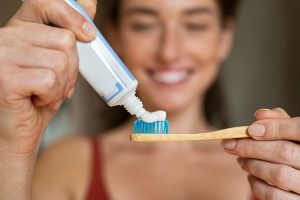

Effective Tips to Prevent Tooth Decay from Dental Professionals
A bright, healthy smile not only enhances our appearance but also reflects good oral health. Tooth decay, also known as dental caries, is a widespread oral health issue that affects people of all ages. The good news is that tooth decay is largely preventable through a combination of proper oral hygiene practices and healthy lifestyle choices.
Brushing and Flossing
Regular brushing and flossing are the cornerstone of good oral hygiene. Brush your teeth at least twice a day using fluoride toothpaste and a soft-bristle toothbrush. Be sure to clean all surfaces of your teeth and brush your tongue as well. Additionally, floss daily to remove plaque and food particles from between your teeth, where the toothbrush cannot reach.
Maintain a Balanced Diet
Your diet plays a crucial role in preventing tooth decay. Limit your consumption of sugary and acidic foods, as they contribute to the erosion of tooth enamel. Instead, opt for a well-balanced diet rich in fruits, vegetables, lean proteins, and dairy products. These foods provide essential nutrients for strong teeth and gums, such as calcium, phosphorus, and vitamins A and C.
Use Fluoride Products
Fluoride is a natural mineral that helps strengthen tooth enamel and makes it more resistant to decay. Choose toothpaste and mouthwash that contain fluoride, and consider using a fluoride mouth rinse to provide an extra layer of protection. If your water supply doesn’t contain fluoride, consult your dentist about the possibility of needing fluoride supplements.
Regular Dental Checkups
Regular visits to the dentist are vital for maintaining optimal oral health. Dentists can identify early signs of tooth decay, perform professional cleanings, and provide personalized advice on oral hygiene. Aim to schedule dental checkups at least twice a year, or as recommended by your dentist.
Dental Sealants and Other Preventive Treatments
Dental sealants are a protective coating applied to the chewing surfaces of teeth, especially molars and premolars. They create a barrier that shields vulnerable areas from plaque and bacteria, reducing the risk of tooth decay. Additionally, your dentist may recommend other preventive treatments, such as fluoride varnish or professional deep dental cleanings, to further safeguard your teeth.
Educate yourself
Learn about proper oral hygiene techniques and dental care practices. Stay informed about the latest recommendations and advancements in oral health to make well-informed decisions.
Frequently Asked Questions
What are the symptoms of tooth decay?
In its early stages, tooth decay may not cause any noticeable symptoms. As it progresses, common symptoms may include tooth sensitivity to hot, cold, or sweet foods, toothaches, visible holes or pits on the tooth surface, and dark spots or staining.
Can tooth decay be reversed?
Tooth decay in its early stages, when it has only affected the enamel, can sometimes be reversed through proper oral hygiene and fluoride treatments. However, once the decay has progressed to the dentin or pulp of the tooth, it cannot be reversed and will require dental treatment, often in the form of tooth-colored fillings, to restore the affected tooth.
How is tooth decay treated?
The treatment for tooth decay depends on the severity of the condition. It can range from dental fillings for small cavities to more extensive treatments such as dental crowns, root canal therapy, or tooth extraction for severely decayed teeth.
Commit to Preventing Tooth Decay
Tooth decay is a preventable condition that demands our attention and commitment to good oral hygiene practices. By following these essential tips you can significantly reduce your risk of tooth decay. A radiant smile is not only a sign of beauty but also an indicator of overall oral health. Embrace these preventive measures and enjoy a lifetime of healthy teeth and gums.


